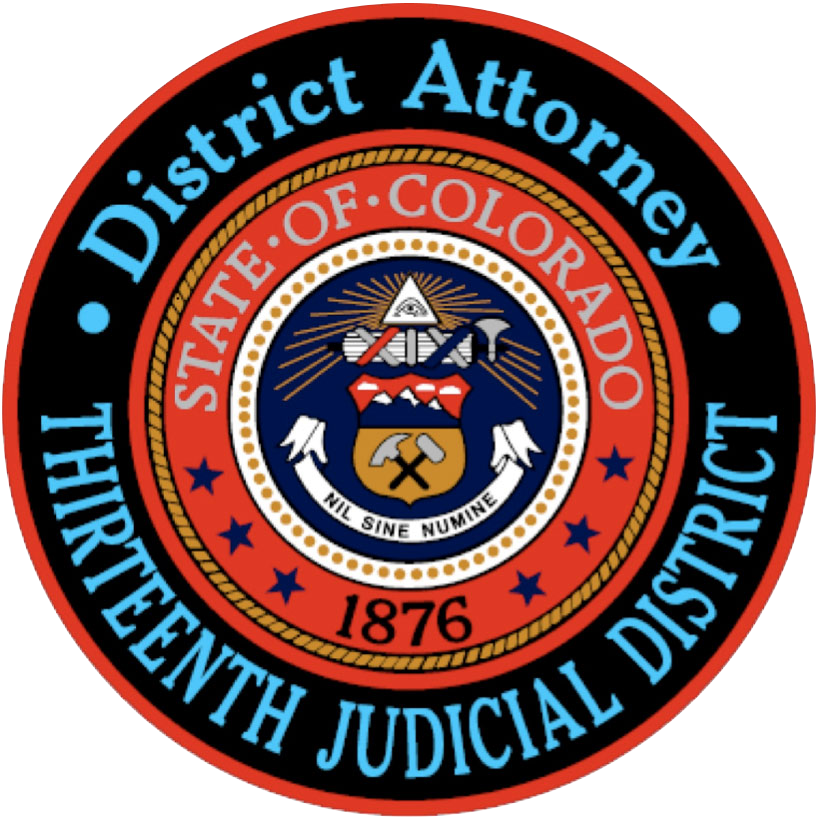
Victim Information
& Support
Actively advocating for victims of crime
Being the victim or witness of a crime can cause lasting effects, both physical and mental. That’s why we connect you with trained victim advocates who can give you support, information and referrals. Our Office and the Sheriff’s Offices of each County within our jurisdiction have victim advocates who help keep victims informed on criminal justice proceedings – pointing you to the most helpful resources in your time of need.
How the court process works
If you are a victim or witness of a crime, you have involuntarily become involved in the criminal justice system. Knowing what to expect can make the experience less overwhelming and intimidating. The information here can help you better understand the court process – including your role in it and what the District Attorney does for you.
Crime
The criminal justice process for felony offenses begins with the crime, and the subsequent investigation or arrest of someone for that crime. Felony offenses will be handled in the District Court, while misdemeanor and traffic offenses will be handled in County Court.
Charges
Once a person has been arrested for a crime, the District Attorney’s Office may file charges. Sometimes charges are filed before the defendant has been arrested. In some cases, charges are filed directly into District Court as the result of a Grand Jury indictment.
Advisements
Once a defendant is arrested or not arrested after the filing of formal charges, the defendant will appear in court for an advisement in which a judge formally advises the defendant of the charges against him or her. The judge usually sets bond at this time, and a date is set for the next court appearance. With some felony charges, the next court date may be a preliminary hearing. In the case of other charges, it may involve a status or dispositional hearing.
Preliminary hearing
At the preliminary hearing, testimony is heard to determine if there is enough evidence against the person for a trial. The defendant may waive a preliminary hearing if he or she wishes. If there is sufficient evidence, the case will be bound over for trial in District Court. The next court appearance is an arraignment.
Arraignment
At the arraignment, the defendant enters a plea. The defendant may plead guilty or not guilty. If the District Attorney’s Office has offered a plea agreement, the defendant may also accept the agreement and plead guilty.
Trial
If the defendant pleaded not guilty, the next step is a trial. This may be preceded by hearings on motions. If the defendant is found not guilty, the case is dismissed and the defendant is free. If the defendant is found guilty, then he or she is said to be convicted of the charges. A defendant who is convicted at trial or who pleads guilty will then be sentenced.
Sentencing
Once a defendant is found guilty by a jury or pleads guilty, the next step is sentencing. Sentencing can occur immediately but is usually scheduled for another date several weeks later. It is a judge’s responsibility to sentence the defendant, and having the defendant return for sentencing at a later date allows the judge to gather additional information before the sentencing decision is made.
Your rights as a victim of violent crime
The Constitution of the State of Colorado and the laws of this state guarantee rights to victims of crime. Among these rights, the most important are those pertaining to information. You have the right to have information about the critical stages of the criminal justice process and to know what is happening with your case. In the case of the victim being deceased or incapacitated, these rights are guaranteed to the victim’s spouse, partner, parent, child, sibling, legal guardian, or grandparent.
For a complete listing of your rights, please refer to Colorado Revised Statutes § 24-4.1-101 through § 24-4.1-304.
Victim Assistance and Law Enforcement (VALE) Program
The 1994 Assistance to Victims of and Witnesses to Crimes and Aid to Law Enforcement Act mandates a surcharge on fines imposed for felonies, misdemeanors, juvenile offenses, class 1 and 2 traffic offenses and certain traffic infractions. The funds collected are used for grants to agencies providing services to crime victims. Our local VALE Board is a five-member board appointed by the Chief Judge that oversees grant funding for victim services providers in the 13th Judicial District. The Board establishes funding for programs that implement the Victim Rights Act and for victim and witness services including but not limited to: crisis intervention, referrals for community services and victim compensation programs, and counseling.
Contact our VALE Administrator to learn more:
Victim compensation
Some victims of crime may be eligible for compensation for medical, dental, or mental health services. Find information about the Colorado Crime Victim Compensation Program, eligibility requirements and how to file a claim.
Victim restitution
While not every victim suffers a financial loss, there is a process to request restitution when applicable. Find out what restitution is, how the process works, and who to contact.

How can we serve you?
Talk to our office to find the information or support you need.
